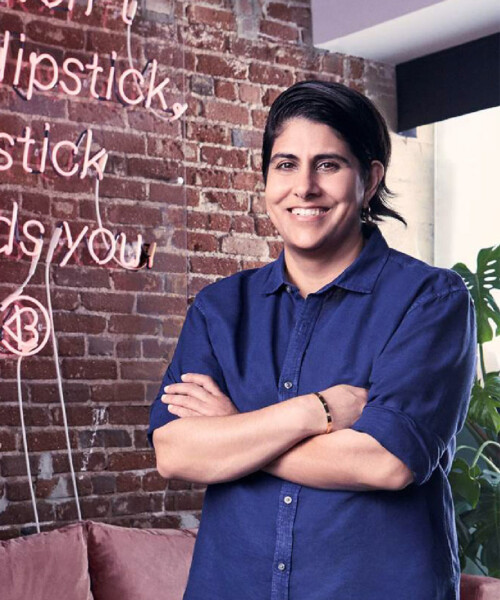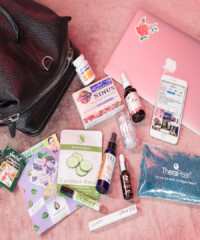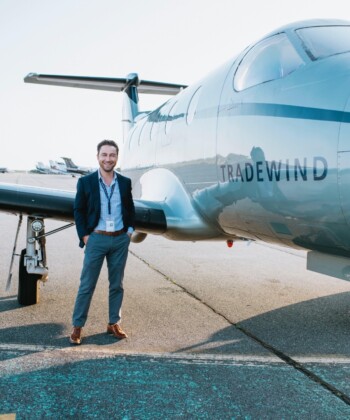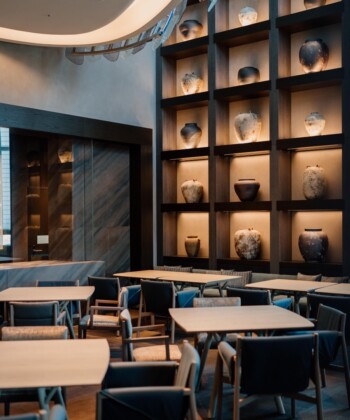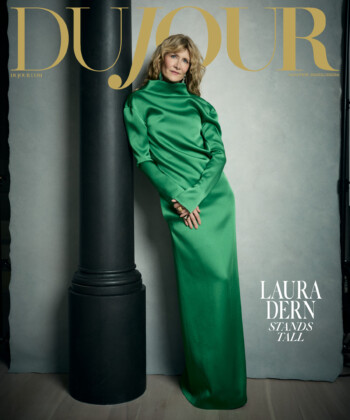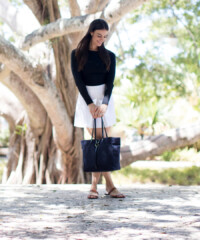In just eight months, Moj Mahdara, the CEO of Beautycon – a brand that began with the revered festival held once a year in New York, Los Angeles and London – has taken over 26 flights across the world. In short, the in-demand tycoon tapped into the “passion points” of the Gen-Z and Millennial lifestyles, and harnessed the power of YouTube (to name just one of the many social platforms now inhabited by Beautycon Media). And among the platforms that these generations use to consume media, Mahdara successfully created room within them for the beauty industry since buying Beautycon in 2013. But this isn’t the same industry that boasted your mother’s red lip and one-shade-fits-all-concealer.
“It’s so interesting to be a consumer,” Mahdara said. “You’re transported back to the era of the art and of the product. Fifty years from now, when people look back at Beautycon [we’ll] be known for being reflective of a time when beauty was being redefined.”
As Mahdara points out, the beauty industry has seen its own resurgence in the way people “buy-in.” No longer can you offer a meager selection of products, but rather the draw is in how companies can diversify what they create. If it’s foundation, is there a wide enough assortment of shades? Will it also hydrate and replenish the skin? Is it organic or plant-based? Is it fit for an active lifestyle? YouTube stars and creators have also effectively provided the opportunity for fans to pick and choose beauty experts that most reflect themselves, and because of that topics often go beyond face value. “It’s evolving to more of a state of mind, thinking about beauty both inside and out,” Mahdara said. Beauty today is deeper than skin-deep.
Beautycon Media currently entails the Beautycon Box, shop, digital and Beautycon Festivals – all of which Mahdara oversees, and have been touched by legacies in the business. Mahdara counts Estèe Lauder, L’OREAL and LVMH as just a few of the many corporations that have given her vision their undivided attention, and who have approached her company with that same excitement and forward-thinking that makes Beautycon so attractive in the first place.
“When you think of some of the biggest brands today like Nyx, Anastasia or ClourPop,” Mahdara explains, “These companies are owned by some of the most magnificent women, and interesting people. Maybe that has something to do with the DNA of why the industry has been shaken up: all of this new, young blood that’s become so successful, so quickly.” It’s true that beauty is unique in that sense, especially in comparison to other verticals in art and lifestyle. “Something I would have never expected was how open to someone like me the beauty industry would be. That was a surprise to me, to be honest with you,” Mahdara said. “I don’t know that it would’ve been that way if I was trying to be in fashion.”
So given recent events – whichever come to mind when one thinks about pop culture, beauty and the part that women play, especially when they’re behind some of today’s most influential brands – have things really changed? Mahdara decidedly remains positive in that respect. “Times have changed,” she concluded. “It is a difficult predicament that we are in the middle of culturally. Truly, you’re seeing the foundation of culture clashing with affluence. But our culture doesn’t want to go back in time. Culture is absolutely resisting it. That’s why I feel like we’re going to be okay.”

























